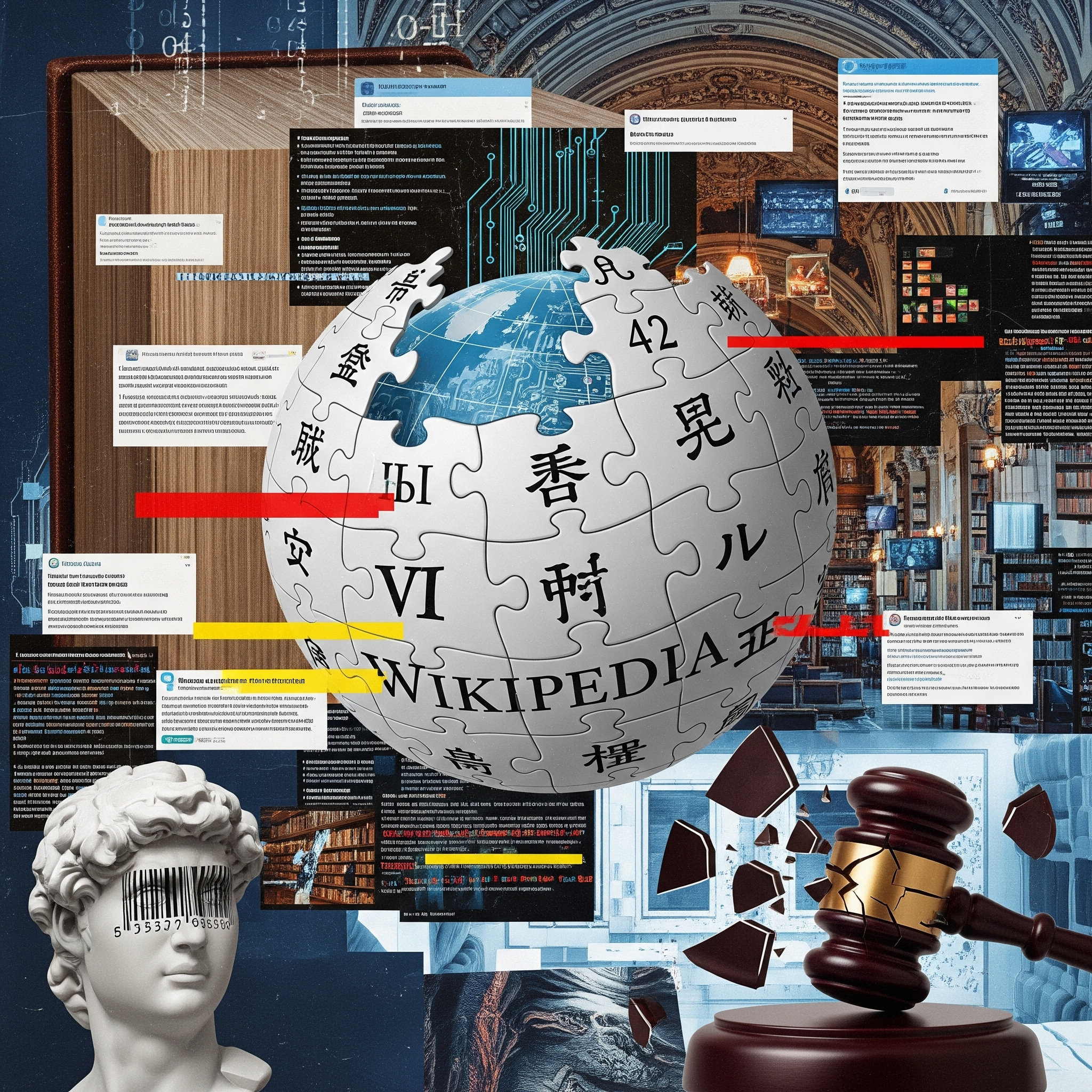The Wikipedia Problem: Why Mainstream Sources Cannot Be Trusted

In the early days of the internet, Wikipedia was lauded as the pinnacle of human collaboration, a global project dedicated to the dissemination of free, accurate information. Its open-source model, allowing anyone to edit and contribute, was celebrated as the ultimate expression of a democratic ideal. However, in the two decades since its inception, this very model has been revealed to be its greatest weakness. Wikipedia, once a noble experiment, has become a compromised battleground where activist editors, ideological factions, and institutional players wage silent wars over the narratives that define our world. The trust we once placed in it, and by extension other mainstream sources, is a relic of a more innocent time.
The core issue lies in what academics call "institutional capture". This is a phenomenon where a public body or a supposedly neutral organisation is co-opted by a particular group to serve its own interests, often at the expense of its founding principles. For Wikipedia, this capture is not a top-down, corporate conspiracy but a bottom-up, organic process. As early as 2005, the former editor of the Encyclopaedia Britannica, Robert McHenry, observed that Wikipedia's "no-names" policy on its authors meant that there was no way to determine the trustworthiness of the information. "The user is in the position of a diner who is not allowed to know whether the cook is a five-star chef or a kid just off the street with a frying pan," he wrote. This lack of accountability has, over time, allowed small, highly motivated groups to dominate key pages, particularly those related to controversial topics such as sex, gender, and biology.
Take, for example, the entry for sex itself. For decades, it was a straightforward biological definition, a matter of chromosomes and gametes. Now, a quick look at the entry reveals a carefully curated maze of caveats, qualifications, and highly specific definitions that serve to obscure rather than clarify. A simple word has been buried under layers of postmodern theory, rendering it functionally useless for anyone seeking a basic understanding. The references, which should be the bedrock of a good encyclopaedia entry, are often from activist blogs, niche academic journals, or self-published manifestos, all presented with the veneer of objective scholarship. This is not a collective endeavour for truth, but a strategic campaign to control information.
The Wikipedia problem extends far beyond its own pages. Because of its high search engine ranking, its entries are often the first result for any query. This gives it immense power to set the public narrative and frame the debate. Its compromised definitions are then replicated, often verbatim, by mainstream news outlets, tech companies, and even government bodies. The journalist Caitlin Moran, in her razor-sharp commentary, once noted how quickly a new term could go from a fringe online forum to a headline in a major newspaper, all thanks to a quick search and a copied-and-pasted Wikipedia summary. This cascade of misinformation means that the institutional capture of a single website can have profound and lasting effects on public discourse and policy.
Furthermore, the notion of "neutral point of view" (NPOV), the cornerstone of Wikipedia’s editorial policy, has been hollowed out. What was once an admirable goal has been redefined by activist editors to mean the "mainstream" or "consensus" view, even if that view is a recently established ideological position with little scientific backing. Dissenting voices, regardless of their credentials or evidence, are branded as "fringe" and systematically removed. A 2012 study by Dr. J. P. Williams of the University of Reading showed a significant bias in Wikipedia articles on contentious topics, with editors who held a strong ideological position being far more likely to revert edits that challenged their viewpoint.
The solution is not to abandon the internet but to become discerning readers and more critical thinkers. We must recognise that the digital age, with its promise of instant knowledge, has also brought with it the risk of instant indoctrination. We must stop treating sites like Wikipedia as an objective oracle and start viewing them as what they are: a reflection of the battles being fought by those who seek to control our reality. We must demand accountability, transparency, and a return to the foundational principles of scholarship and intellectual honesty. It is a long, hard road, but the alternative is to cede control of our knowledge base to a small, unelected cabal of digital ideologues.
The Wikipedia Problem is not just about a website; it is a profound cautionary tale about the fragility of truth in the digital era. It serves as a stark reminder that while technology can make information more accessible, it cannot, by itself, guarantee its integrity. The onus, therefore, falls to us, the readers, to cultivate a robust and healthy scepticism, to question the sources we are given, and to actively seek out information beyond the consensus-enforcing echo chamber of mainstream digital platforms. Only then can we hope to reclaim the intellectual ground that has been lost.